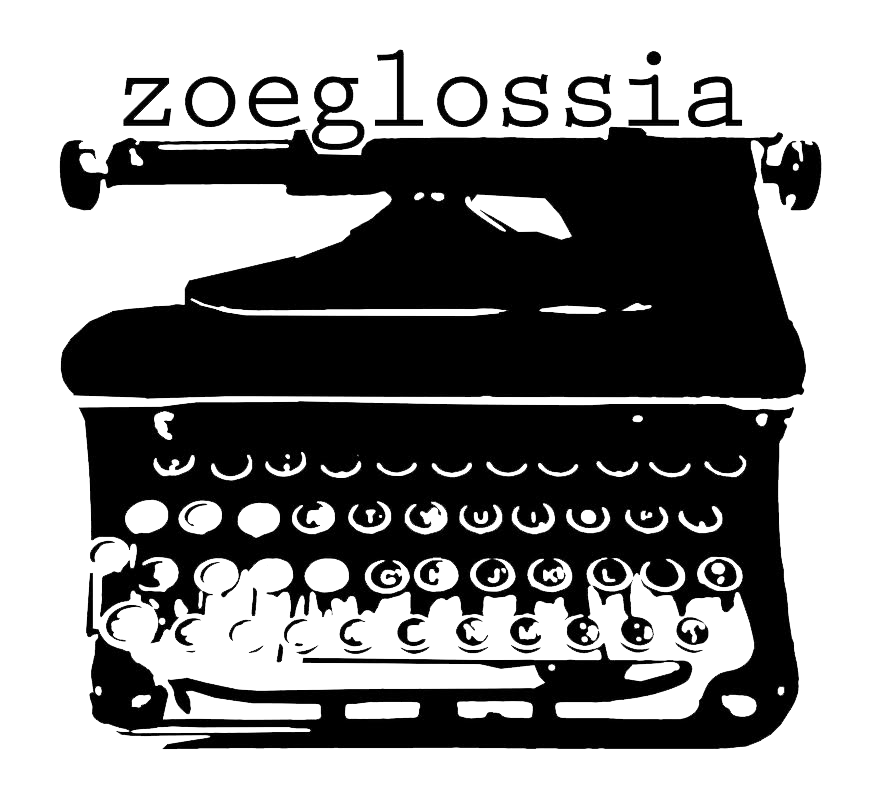February 2023
Zoeglossia Poem of the Week Series: Black Disability History is Black History
Curated by Zoeglossia Staff
To be Black, disabled, and a poet is to make one’s life into an archive, into an imprint of memory, and an eternal grimoire. There is alchemy in how we continue to survive. We live in the belly of a settler colonial empire determined to eradicate our culture and humanity. This month’s curation is intended to be a portal into the realities of Black disabled contemporary poets for
when we speak we are afraid
our words will not be heard
nor welcomed
but when we are silent
we are still afraid
So it is better to speak
remembering
we were never meant to survive.
– Audre Lorde, The Black Unicorn: Poems.
I chose Saleem Hue Penny’s “US Dept. of Justice Erasure for (law) Enforcement (officers)” because we all have the police on our minds and in this poem erasure becomes so plainly a form of resistance, peeling back the falsity of the official story to show the heartbreaking reality underneath. I also feel this poem intersects with the series Zoeglossia has been putting out on instagram this month: 'Black disabled poets...have been foundational in shaping disability poetics of past, present, and future.' Saleem's extraordinary poem enacts this in an indelible and emotional way. It's a poem that stopped me in my tracks.
-Sheila Black, Zoeglossia co-founder
I chose “Meeting Anne Sexton” by Airea D. Matthews because if we are celebrating Black history, our suffering has got to be held. Black suffering is ever present. We are overwhelmed with the grief of our complexities never being seen with nuance. I found this poem particularly powerful, especially in a world that wants us to constantly “move on” from traumas systematically inflicted on us. Matthews’ poem challenges us to stop and sit with what is a genuine witnessing of being Black and human.
-Walela Nehanda
Just as relevant in 2023 as in 1843, Alayna Powell's Untitled (Poem of the Week January 18, 2021) is a bold docupoetic piece that cuts to the quick of the modern medical industrial complex. With no time wasted for punctuation, instead favoring crisp, rapid line breaks, Powell's piece interrogates the centuries-old tradition of subjugating Black women's bodies and minds to torture under the guise of medical "research" (see Equal Justice Initiative). A researcher like Powell could have populated this piece with any number of Black women's names (see Saidiya Hartman's Critical Fabulation research), their true identities erased in favor of marketable curiosities & oddities (see National Museum of African American History & Culture). However, Powell's choice to focus, not on a singular speaker, but on the universe of Black women, in a sense, indicts the reader as a bystander. In other words, the onus is now on us to contemplate, research, and elevate the systematically silenced narratives of Black women. I look forward to reading new poems, viewing new pieces (yes, Powell also writes comics), and most importantly bearing witness. On this Black History Month, pause--(right now!)--and picture the world Black women have already dreamed--180 years from now. In the words of Lucille Clifton, "won't you celebrate with me"? My eight-year-old daughter recently got a neon compass in a birthday goodie bag. I am so grateful that editors, researchers, and poets like Alayna Powell are re/writing a new topography for her to follow, Untitled, as it were.
-Saleem Hue Penny
Because Black Disability History is Black History, I’m honored to choose Leroy F. Moore as part of this curation. As Zoeglossia’s very-first curator, Moore will forever be rooted in our history. His powerful and insightful poem “Brotherly Love With A Limp” is a call to action for Krip-Brotherhood, a term that he coined. Now, I won’t pretend to understand the full meaning of what this embodies, but I know what it feels like to yearn for community, one that empowers individuals to bring much needed cultural change.
-Tonya Suther, webmaster and programming assistant.
